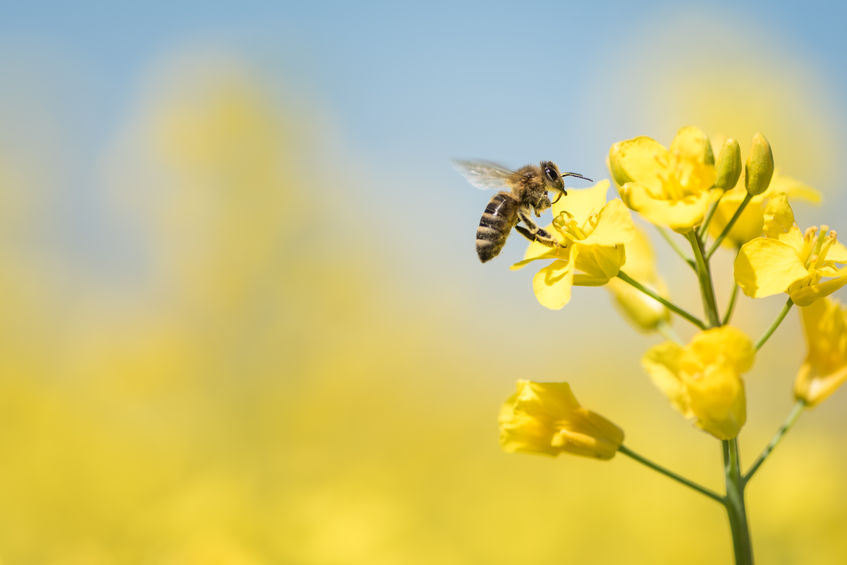
Government-subsidised schemes that encourage farmers to plant more wildflowers has led to an increase in key bee species, according to a new study.
The research, led by the Centre for Ecology & Hydrology, measured the presence of 353 wild bee and hoverfly species across the UK, from 1980 to 2013.
It found an increase in key bee species responsible for pollinating flowering crops, such as oil-seed rape.
This could be in response to the large increases of mass-flowering crops grown during the study period and agri-environment schemes that lead to more wildflower plantings for bee species to pollinate.
However, the research also showed one third of species experienced declines in terms of areas in which they were found, while one tenth increased.
For the remainder of species, their distribution was either stable or the trend was inconclusive.
The research, published in the journal Nature Communications, also showed that on average, the geographic range of bee and hoverfly species declined by a quarter. This is equivalent to a net loss of 11 species from each 1km square.
Overall losses were more notable for pollinator species found in northern Britain. This may be a result of climate change, the study suggests, with species that prefer cooler temperatures reducing their geographical spread in response to less climatically suitable landscapes.
'Healthy countryside'
Dr Gary Powney, who led the research, said there is 'no one single cause' for the widespread differences in distribution change across pollinating insects.
However, he blamed habitat loss as a likely key driver of the declines. He said: “While the increase in key crop pollinators is good news, they are still a relatively small group of species.
“Therefore, with species having declined overall, it would be risky to rely on this group to support the long-term food security for our country.
“If anything happens to them in the future there will be fewer other species to ‘step up’ and fulfil the essential role of crop pollination,” Dr Powney added.
“Non-crop pollinators are also vital for a healthy countryside rich in biodiversity; not only because of their crucial role in pollinating wildflowers, but as a key food resource for other wildlife.”
Dr Claire Carvell, a co-author of the study, said wildlife-friendly farming can have a 'lasting, positive impact' on wild pollinators in rural and urban landscapes.
